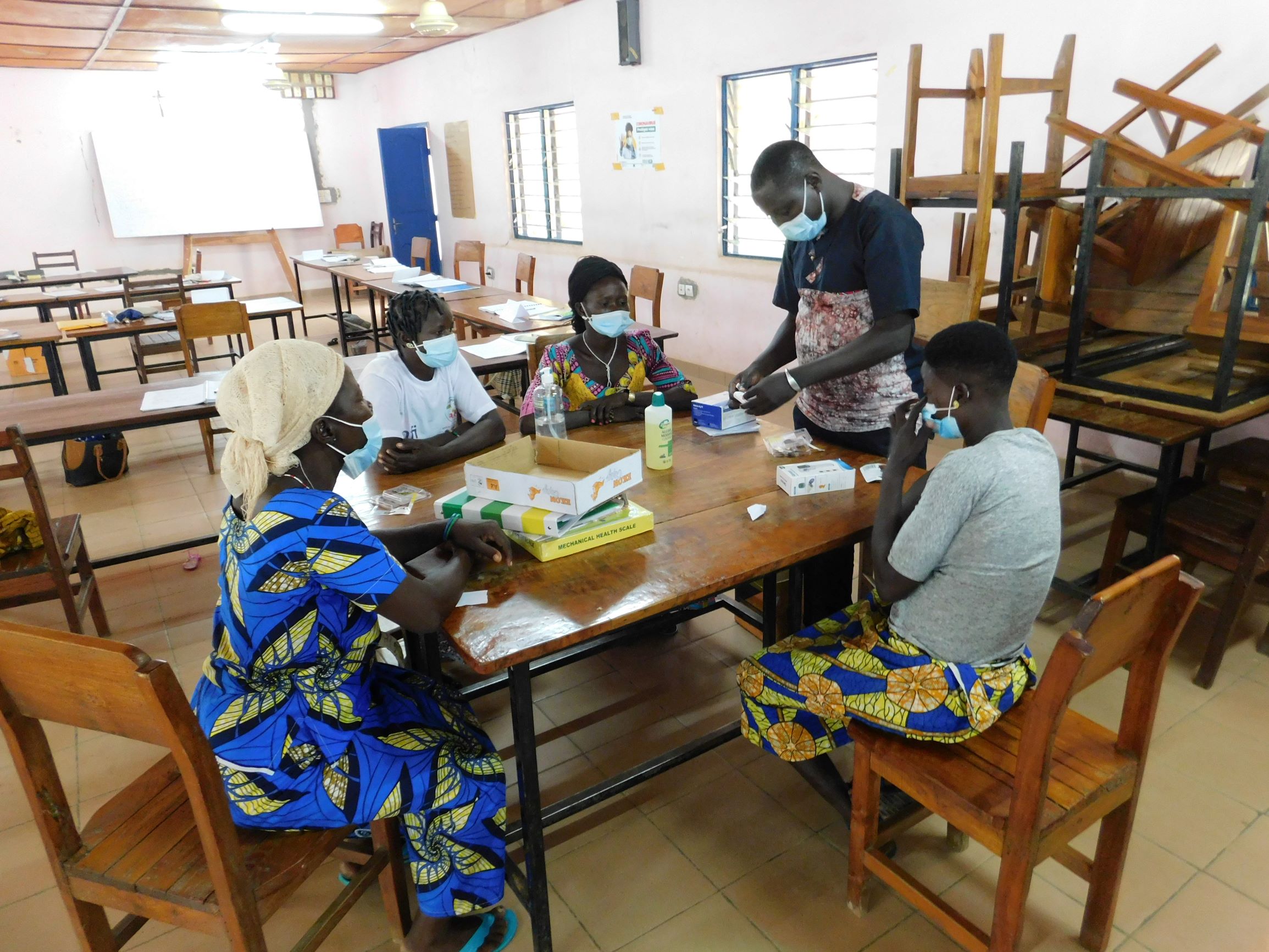Integrate Health, alongside the Ministry of Health, has been preparing for the launch of the Integrated Primary Care Program in the district of Kéran since January. As part of the final steps in the process, 44 Community Health Workers (CHWs) are undergoing the final days of their initial training.
The 44 new CHWs were recruited through a community-led process, which began with candidate nominations by their neighbors. Upon their nomination, interested CHW candidates participated in oral interviews and a written test to assess their interest in working as a CHW. The top-scoring candidates were then presented to village chiefs and other community leaders for final approval.
Once approved by the community leaders, the CHW candidates were asked to attend an initial training where they spent three weeks learning how to deliver healthcare to their fellow community members. Due to the COVID-19 pandemic, only 15 CHWs were able to attend the training at one time, requiring three separate rounds of training.
Currently, the final round of training is underway. This is an exciting moment for the candidates as they prepare to embark on their new role as full-time, salaried CHWs. We wanted to take a moment to ask a few of the candidates about what motivated them to become a CHW and what they are finding surprising as they undergo training.
Moutiété Kpakou: Community of Nadoba
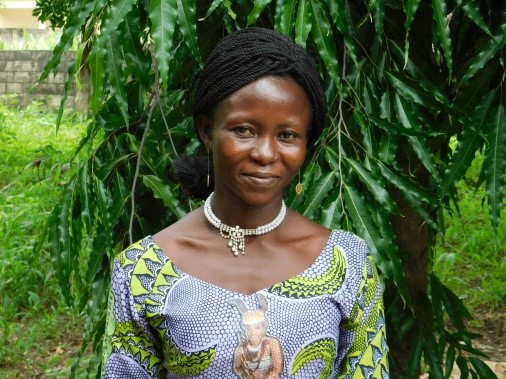
Why did you choose to become a CHW?
I chose to become a CHW because I wanted to help solve health problems in my community. I want to help reduce the mortality rate of children 0-5 years old, pregnant and postpartum women, and people living with HIV/AIDS.
What did you learn that was surprising or extraordinary during your training?
I learned how to make enriched porridge with Nere (a tree found throughout West Africa with seeds rich in fat and calcium). I also learned that pregnant women who are HIV-positive who follow the counseling and treatment protocol well will give birth to an HIV-negative child and can even breastfeed their children for a certain period of time without any problems.
How do you think you will contribute to the wellbeing of the people in your community after this training that you have taken?
I can educate the people in my community by talking to them about the benefits of good hygiene, about the importance of prenatal consultations and delivery at the hospital, and by assuring them that some care is free of charge.
Grâce Kome: Community of Koussapangou
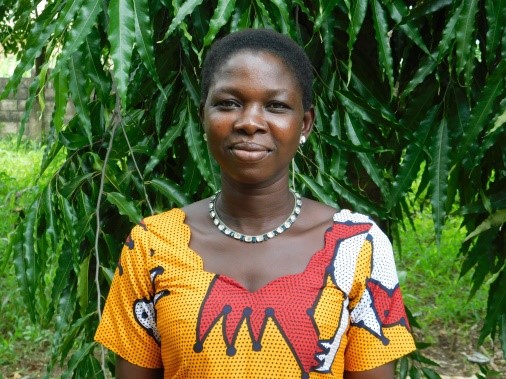
Why did you choose to become a CHW?
I chose to become a CHW for three reasons:
- To realize my dream of working in the healthcare field
- To serve my community
- To help reduce the maternal and child mortality rate with the support of Integrate Health.
What did you learn that was surprising or extraordinary during your training?
Integrated Management of Childhood Illness from theory to practice, how to treat simple illnesses, and how and when to treat severe cases.
How do you think you will contribute to the wellbeing of the people in your community after this training you have attended?
I think I will contribute to the wellbeing of my community by committing myself body and soul, with love and passion to do my job well. [I will]o raise awareness and have a positive impact thanks to the good and excellent results that I will achieve by giving the best of myself.
N’tché N’Koua: Community of Bassamba
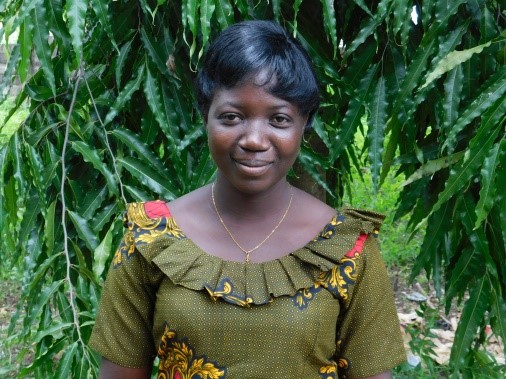
Why did you choose to become a CHW?
I chose to become a CHW because I want to save lives of children, women, and people living with HIV/AIDS…in my community.
What did you learn that was surprising or extraordinary during your training?
One of the surprising things I learned is how to make enriched flour [for improving child nutrition]. I also learned that people living with HIV/AIDS can have children without HIV/AIDS.
What did you find most striking during the training?
What impressed me the most was the welcome we received. The trainers are dynamic, and they helped us better understand things.
Viviane Yadona: Community of Kamaka
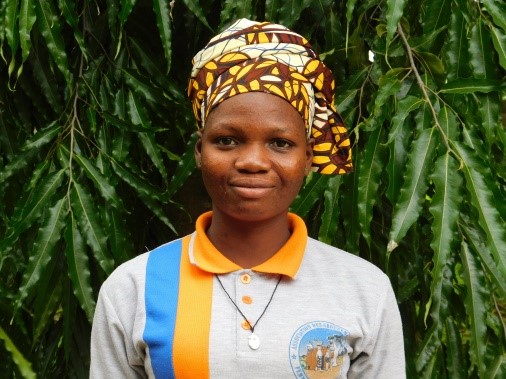
Why did you choose to become a CHW?
I chose to become a CHW for the future of my community. Being a CHW will allow me to help reduce maternal and child mortality in my community.
What did you learn that was surprising or extraordinary during your training?
One of the surprising things I learned is that I can provide free care to people in my community.
How do you think you will contribute to the well-being of the people in your community after this training that you have taken?
After this training, I will educate the people in my community [about health topics] and talk to them about the care we offer to children from 0 to 5 years old and to pregnant women.
What did you find most striking during the training?
The trainers took care of me and helped me so that I understood better and could do the research myself. They took their time to explain all the points that I did not understand.

